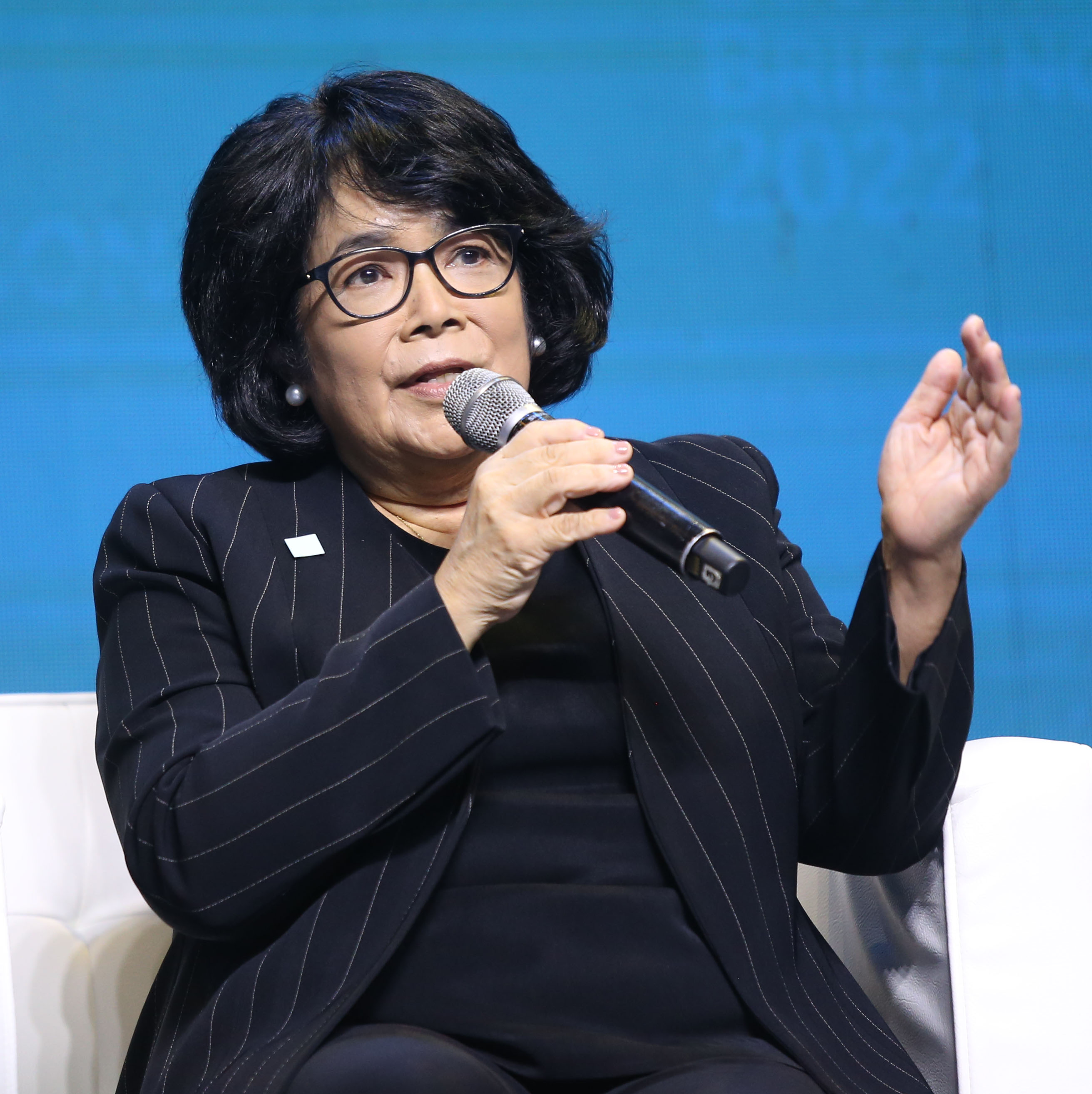By Virgilio DC. Galvez
It’s been a year since Toni Yulo-Loyzaga has moved out from the ivory tower, as it were, down to the frontlines – to lead the fight to preserve, protect, and bring back to life, what some would say, the remains of the country’s natural resources.
In keeping perhaps with her persona, she has quietly adopted innovative ways to enable the DENR bureaucracy to work together in achieving goals she has set during her watch.

DENR Secretary Toni Yulo-Loyzaga
Navigating her way through what she has described as the department’s silos has been “very challenging”.
“We’ve had to deal with a lot of legacy issues, as you know, and we’ve had to deal with some cultures and practices that are part of the history of this department,” says Yulo-Loyzaga without elaborating in an interview.
Innovations
Yulo-Loyzaga has laid down the infrastructure which will provide her department with the data she needs to make difficult, and maybe even controversial, but science-based decisions in the days ahead.
She has brought in two new undersecretaries – one to oversee organizational transformation and the training of the “next generation leadership” of the department, and another known expert in the field of environmental science to manage a geo-spatial database.
“These two achievements, along with the organization of the Water Resources Management Office, I hope will characterize our first year as the introduction of evidence-based decision making in this department,” says Yulo-Loyzaga.
She explains that the geo-spatial database aims to properly account for, value, and manage our country’s natural resources, as well as a basis to identify priority areas for forestation, reforestation, and afforestation.
It can detect encroachment on public coastal areas, illegal mining activities, and industries without necessary permits and pinpoint water systems that can be developed for hydropower and water supply.
Mindoro oil spill
Even as she puts her department in order, Yulo-Loyzaga has had to go out to the field to deal with a different set of challenges.
In February this year, a fuel tanker sank off Naujan, Mindoro Oriental and spewed out about 800,000 liters of oil resulting in damages amounting to over a billion pesos.
Yulo-Loyzaga flew out to check on the situation, met with the governor and the coast guard, and deployed a hydrographer ship to locate the sunken vessel.
“We needed to find out where the oil was heading. For that, we turned to the UP Marine Science Institute. We were able to anticipate the flow towards the shore,” she says.
Water quality has since improved in most areas affected by the oil spill. She however takes pains to point out it is the local government that can best monitor and protect the environment.
“We are not there 24 hours, we are undermanned as a department. But the local gov’t is present and they do have environment officers…and we will support them,” she says.
Reclamation at Manila Bay
Yulo-Loyzaga has also begun to look into the multi-billion peso (₱330.6 billion) reclamation projects in Manila Bay.
“Reclamation, of course, is one way forward in terms of the economic development of the different areas. However, we need a thorough approach that welcomes different perspectives from all groups,” she told reporters.
A task force composed of Filipino scientists and foreign experts will be formed this month to conduct an evaluation of the environmental impact of the ongoing reclamation projects.
An initial assessment has already shown possible violations and the DENR is reviewing the ECC issued to the contractors to check for compliance.
El Nino and Water Security
Yulo-Loyzaga sees water security as a priority and immediate concern, especially with El Nino looming large on the horizon.
“Conservation is on top of our list. But we are also ramping up efforts at installing water collection facilities in areas projected to be hit hard by El Nino,” she says.
PAGASA has projected that most areas will experience below-normal rainfall conditions from November 2023 to January 2024.
The creation of the Department’s Water Resources Management Office (WRMO) is expected to spur efforts at ensuring “universal access to safe, sufficient, affordable, and sustainable water supply, sanitation, and hygiene by 2030.”
A resilient future
Having been executive director of the Jesuit-run Manila Observatory from 2007-2016, Yulo-Loyzaga has long adopted a science-based approach to sustainable development and poverty reduction.
With five years to go, Yulo-Loyzaga has wasted no time in doing what she thinks needs to be done to accomplish the goals she has set during her watch.
The bespectacled professor-scientist with a hairdo that has sparked comparisons online with the Edna Mode character in the movie Incredibles is more than ready to fight in the environmental frontlines.
With a growing consensus among scientists that the world’s climate has gone beyond the tipping point, Yulo-Loyzaga has the credentials to help steer the country towards a resilient future.
(Virgilio DC. Galvez is a freelance journalist, a writer, student of history, and development management specialist. He was deputy director general of the Philippine Information Agency (PIA) in 2010-2016, and president of the Foreign Correspondents Association of the Philippines (FOCAP) in 2004-2005.)